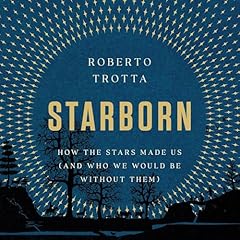
Adaptable
How Your Unique Body Really Works and Why Our Biology Unites Us
No se pudo agregar al carrito
Solo puedes tener X títulos en el carrito para realizar el pago.
Add to Cart failed.
Por favor prueba de nuevo más tarde
Error al Agregar a Lista de Deseos.
Por favor prueba de nuevo más tarde
Error al eliminar de la lista de deseos.
Por favor prueba de nuevo más tarde
Error al añadir a tu biblioteca
Por favor intenta de nuevo
Error al seguir el podcast
Intenta nuevamente
Error al dejar de seguir el podcast
Intenta nuevamente
 Exclusivo para miembros Prime: ¿Nuevo en Audible? Obtén 2 audiolibros gratis con tu prueba.
Exclusivo para miembros Prime: ¿Nuevo en Audible? Obtén 2 audiolibros gratis con tu prueba.
Elige 1 audiolibro al mes de nuestra inigualable colección.
Acceso ilimitado a nuestro catálogo de más de 150,000 audiolibros y podcasts.
Accede a ofertas y descuentos exclusivos.
Premium Plus se renueva automáticamente por $14.95 al mes después de 30 días. Cancela en cualquier momento.
Compra ahora por $20.70
-
Narrado por:
-
P.J. Ochlan
How does the body work—and why does it seem to work so differently for each of us? Why do we grow tall or short, obese or slim? Why do some of us stay healthy despite our bad habits while others who do all the right things fall ill? When we look around the planet, why do people vary in skin color, facial features, stature, body proportions, and disease risk?
The answer is both simple and powerful: We’re different because we’re adaptable. Over the past 100,000 years, as humans expanded into every biome on the planet, our bodies were fine-tuned to our local environments. Adaptability is at the heart of being human and the engine of our diversity – our species’ original superpower. As an evolutionary anthropologist working with human populations around the globe, Herman Pontzer has conducted research that embraces our incredible diversity, documenting the connections among lifestyle, landscape, local adaptations, and health.
Adaptable takes us on a tour of the human body. In each chapter, we learn how our bodies navigate an uncertain world: how we grow and mature; how our brains develop and learn; how our hearts, lungs, and digestive systems deliver oxygen and nutrients; how we manage toxins, temperature, and water balance; how we move and reproduce; how our immune system keeps invaders at bay; and how we age and decline. Along the way, we learn how to take care of our remarkable bodies, and that the universe of healthy lifestyles is vast (we don’t need the latest fad diet or cleanse!). Crucially, we come to see how understanding our bodies helps us make sense of the big issues we face today, from vaccines to heart disease, IQ to athletic excellence, diets and obesity to sex and gender, and what we can do to live longer and healthier.
Los oyentes también disfrutaron:




















Reseñas de la Crítica
“Adaptable is ambitious, wide-ranging, and fun to read. Pontzer has a gift for explaining complicated and nuanced topics in fresh ways, and he tackles all the big questions about how our bodies work with a delicate—and entertaining—touch.” —Alex Hutchinson, author of the New York Times bestseller Endure
“Pontzer has written a dazzling guide to the human body, in all its weird and wonderful glory. This is the fascinating story of how our bodies—products of evolutionary history and genes, environment and culture—work and why they differ. Brimming with wit and wisdom, Adaptable is essential reading for anyone interested in how we humans came to be the way we are.” —Kate Wong, senior editor, Scientific American
“Adaptable is the book I've been waiting for. It answers questions that nag us today about the human condition and describes how we got here. It’s an engaging and down-to earth read that bristles with up-to-date and thoughtfully provocative scholarship.” —Nina G. Jablonski, PhD, professor of anthropology at the Pennsylvania State University
“Pontzer has written a dazzling guide to the human body, in all its weird and wonderful glory. This is the fascinating story of how our bodies—products of evolutionary history and genes, environment and culture—work and why they differ. Brimming with wit and wisdom, Adaptable is essential reading for anyone interested in how we humans came to be the way we are.” —Kate Wong, senior editor, Scientific American
“Adaptable is the book I've been waiting for. It answers questions that nag us today about the human condition and describes how we got here. It’s an engaging and down-to earth read that bristles with up-to-date and thoughtfully provocative scholarship.” —Nina G. Jablonski, PhD, professor of anthropology at the Pennsylvania State University
Las personas que vieron esto también vieron:


















Research meets real life examples
Se ha producido un error. Vuelve a intentarlo dentro de unos minutos.
For how approachable this was in content, the performance was a bit lackluster. Hopefully the reader reviews some of the (more polite) feedback on other books because honestly good voice good sound quality, just held back by each 1-3 sentences being read like its own statement rather than nice flowing paragraphs. Jarring at times.
Not the most insightful review but felt obligated as there were no others. Good book, many would benefit from reading!
Surprisingly Engaging
Se ha producido un error. Vuelve a intentarlo dentro de unos minutos.
Mo uneducated zealöt, spouting metaphysixal nonsense.
great and informed
Se ha producido un error. Vuelve a intentarlo dentro de unos minutos.


